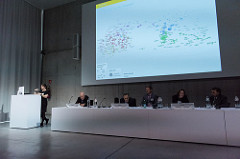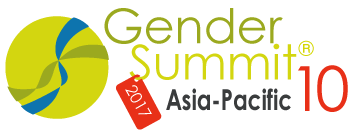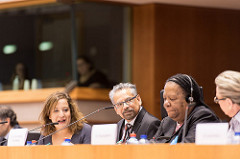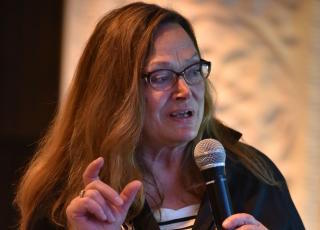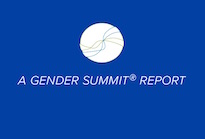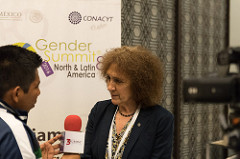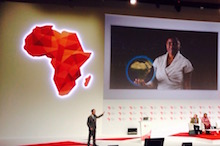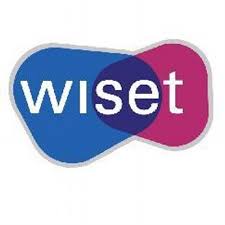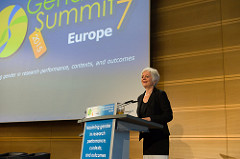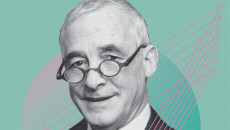Strategic partnership with Elsevier Foundation
Elsevier and The Elsevier Foundation have been long-term supporters of the Gender Summits, supporting individual events over the years. We are delighted to announce a new partnership between the Elsevier Foundation and Portia: Gender and Science (founders of the Gender Summits) that will help provide continuity across the regional editions of the Summits and strengthen our knowledge production work. The strategic partnership builds on the synergies between Elsevier and the Gender Summits. Photograph: Rachel Herbert of Elsevier speaking about 'Extracting STEM gender indicators from published sources' at the GS9Eu.

